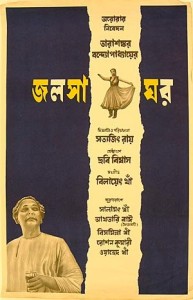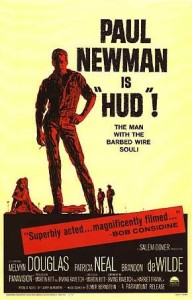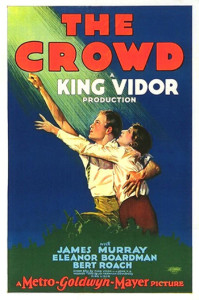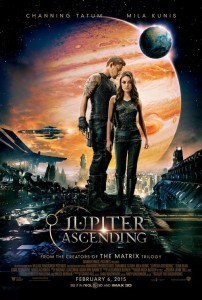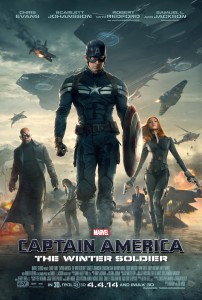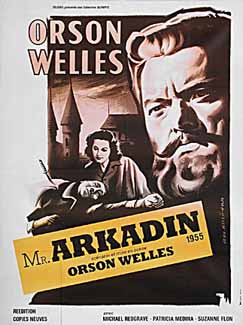The Holy Mountain (1973)
ABKCO Films
Director: Alejandro Jodorowsky
Main Cast: Alejandro Jodorowsky, Horacio Salinas
Alajandro Jodorowsky is really one the the most unique film directors of his time. The Holy Mountain opens much like The One Thousand and One Nights (especially Raoul Wash‘s The Thief of Bagdad), with a thief (Horacio Salinas) cavorting about a town. The town is a bit heavy on religious and military pomp (recalling both Fellini and Costa-Gavras‘ political thriller Z). There is much other symbolism, including characters modeled on Tarot cards. But then the thief hops aboard a hook being pulled up a minaret-like tower and enters the mysterious structure. A cloaked alchemist figure (Alejandro Jodorowsky) disarms the knife-wielding thief and then makes him his apprentice, telling him, “You are excrement; you can turn yourself into gold.” This, of course, in the premise of modern psychoanalysis.
The alchemist, acting as a “master” (Jodorowsky describes the character as “a sort of hybrid of Gurdjieff and the magician Merlin“), then introduces a montage of scenes describing his other disciples. These are powerful, wealthy figures, and yet, also the most outrageously surreal representations of society’s worst traits: domination, deception, decadence, exploitation. He summons them and they ceremonially burn their money and effigies. They set out on a quest to find the mythic Holy Mountain upon which hermits who know the secret of immortality have supposedly lived for thousands of years. They plan to capture the hermits and appropriate the secret.
The rest of the film is a surreal vision of an adventure movie, supposedly taking inspiration from René Daumal‘s novel Mount Analogue: A Novel of Symbolically Authentic Non-Euclidean Adventures in Mountain Climbing. A girl (Ana de Sade) with a monkey follows the master and his disciples. On the journey, the group is confronted with a series of tests to provoke subjective destitution, to surrender worldly desires. The master convinces disciples to kill him, literally and symbolically (though with a laugh, he is killed only symbolically in one scene despite literal intentions). The thief winds up with the girl with the monkey. Although Jodorowsky wanted the film to end in a paradise scene filmed in a Mexican restaurant with a woman (actually) giving birth on camera, the pregnant woman backed out at the last minute, scuttling those plans. Instead, the film ends in an equally remarkable way. The master orders the camera to zoom back, revealing the film equipment surrounding the actors — what is known in cinema as “breaking the fourth wall.”
Much like in Jodorowsky’s immediately prior film, the western El Topo, there is much emphasis on traversing the fantasies of religion (especially) and cultural desires. Jodorowsky very much makes his films according to Antonin Artaud‘s vision of a “theater of cruelty,” producing shocking, bizarre scenes to derange and assault the senses of viewers in the hopes of making them traverse their own psychological fantasies. Viewers are meant to be surprised by what they see, to encourage them to cut the Gordian knot of their own ingrained habits of thought imposed by culture (and especially by family). There is little doubt most viewers have never scene a movie quite like this! Yet for as much as he breaks down mythic cultural institutions and the illusions that symbolically bind individuals, he refashions mystic processes in an atheistic way. Here, he is concerned with a kind of frontier justice that fights symbolic problems with symbolic weapons, though later in life he changed his methods somewhat into what he calls “psychomagic”, a kind of “shamanic psychotherapy” — which perhaps can be described as using poetic rituals to self-administer metaphorical fulfillment of desires, to free the people burdened by those desires to engage reality on their own terms.
If there is any other artist worth comparing to Jodorowsky, aside from Artaud and perhaps Yoko Ono and Carlos Castaneda, it might be the jazz bandleader Sun Ra. In a documentary, an associate said that Jodorowsky liked to work in areas beyond his knowledge Sun Ra made an album called Strange Strings in which he instructed the performers this way: “We’re going to play what you don’t know and what you don’t know is huge.” While Sun Ra dealt in Afro-futurism, and especially Egyptian and outer-space mythology, Jodorowsky has a different set of things he draws from, like the Tarot. They both nonetheless share a very communal, mutually-supportive practice that draws on the strangeness of mythology and exoticism to promote self-empowerment and liberation. Contemporary philosophers like Alain Badiou like to talk about the need for positive statements about the world. Isn’t Jodorowsky exactly that?
Jodorowsky had difficulty funding many of his later film ideas, with his ambitious attempt to film a version of the sci-fi novel Dune falling apart before shooting began — recounted in the documentary Jodorowsky’s Dune (2013). It took him almost a decade before he actually completed his next feature, Tusk (1980), and it was not until the horror film Santa Sangre (1989) that he really made something with close to full artistic control. He turned to writing comics and books instead of films when funding was not available. This seems partly a matter of the idealism that peaked in the late 1960s fading away. Jodorowsky’s work certainly sits in opposition to everything that the celebrity-driven, corporate, commodified mass culture of the following few decades.
While a dispute with the film’s distributor kept The Holy Mountain from widespread view for decades, it has become available again. It is quite a film, and its “comeback” has brought well-deserved attention to an artistic method that presents a substantially different approach than the mainstream. Love it or hate it, this won’t be a film easily forgotten.


